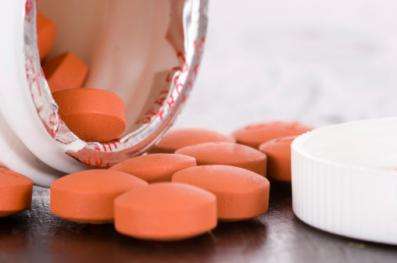What's behind the heartbreaking risk of anti-inflammatory drugs

Researchers have known for more than a decade that the risk of heart disease and stroke increases when people take pain relievers like ibuprofen and other non-steroidal anti-inflammatory drugs, or NSAIDs. Now, scientists from the University of California, Davis, have uncovered some of the reasons why these drugs can harm heart tissue.
The study was recently published online in the Journal of Molecular and Cellular Cardiology.
Working with heart cells from rats and mice, the team found that NSAIDs:
- Attack mitochondria, reducing the cardiac cell's ability to produce energy;
- Cause the production of reactive oxygen species, which stresses heart cells and is associated with many diseases, including heart disease;
- Impair the cardiac cell's proteasome, the mechanism for degrading harmful proteins. This leads to toxic buildup and eventually to the death of cardiac cells.
"We knew these non-steroidal anti-inflammatories had negative side effects for heart disease and stroke risk, " said corresponding author Aldrin Gomes, a UC Davis associate professor of Neurobiology, Physiology and Behavior. "But now we have an idea of some of the mechanisms behind it."
Drugs affect cardiac cells
The scientists compared naproxen, considered the safest available NSAID and available over the counter, with another, more potent anti-inflammatory, the prescription drug meclofenamate sodium. They found that:
- The prescription drug was more likely to negatively impact heart health than naproxen.
- Naproxen did not affect proteasome function or cause heart cells to die. It did, however, impair mitochondrial function and increase reactive oxygen species produced in cardiac cells. It also is associated with an increase in the chance of stroke.
- Meclofenamate sodium increased reactive oxygen species, impaired mitochondrial function, decreased proteasome function, and increased cardiac cell death.
- "We were surprised to see that many of the NSAIDs we tested were causing the cardiac cell to die when used for prolonged periods," said Gomes. "Some people are taking these drugs too often, and this is a problem. These drugs are abused."
Vitamin C may help decrease risk
The study results suggest that ingesting an antioxidant, like vitamin C, before taking a NSAID may prevent cardiac cell death without interfering with the drug's ability to provide pain relief.
Gomes said that, for moderate pains, rubbing the anti-inflammatory topically onto the pained area can be effective without exposing the entire body to increased cardiovascular risk. Yet he advised caution when using NSAIDs either topically or orally.
More information: Rajeshwary Ghosh et al. Different effects of the nonsteroidal anti-inflammatory drugs meclofenamate sodium and naproxen sodium on proteasome activity in cardiac cells, Journal of Molecular and Cellular Cardiology (2016). DOI: 10.1016/j.yjmcc.2016.03.016



















